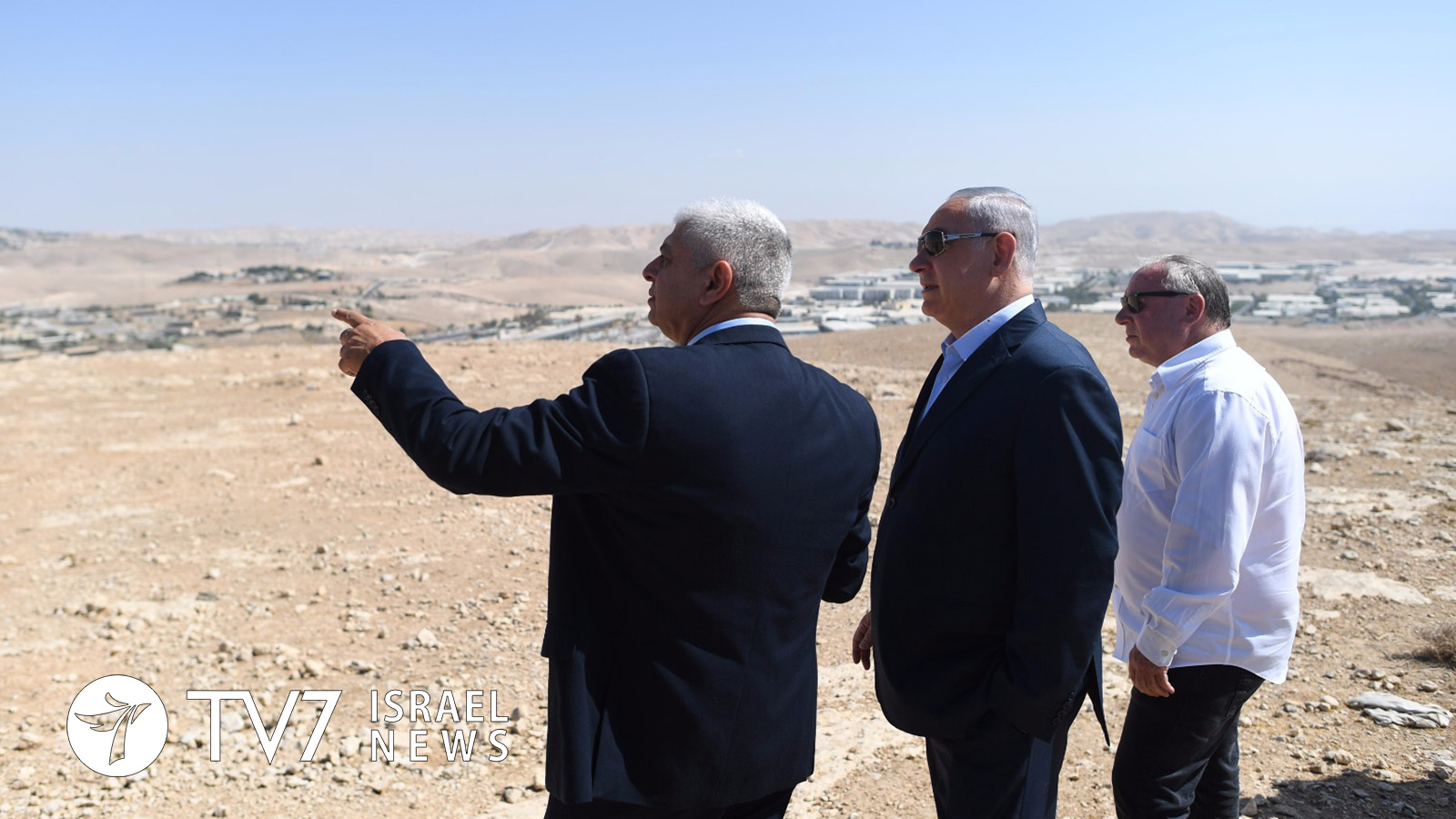Prime Minister Benjamin Netanyahu responded to the latest Egyptian-brokered reconciliation efforts, emphasizing that Israel is not interested in what he termed “bogus reconciliation” by the Palestinians. Netanyahu emphasized, “We expect everyone who talks about a peace process first to speak about the need to recognize the State of Israel, the state of the Jewish people. Peace requires recognition of the State of Israel, the nation-state of the Jewish people. We are not interested in a bogus reconciliation in which the Palestinian factions reconcile with each other at the expense of our existence. Therefore, we expect to see three things: one, recognition of the State of Israel, two, the dismantling of the Hamas military arm, and three, the severing of the connection with Iran, which calls for our destruction. These are basic things. We insist on them,” the Israeli leader stressed.
Prime Minister Netanyahu, who earlier in the day toured the West Bank city of Ma’ale Adumim, also vowed to expand Israel’s construction projects across lands he declared “will be part of the Jewish state under any final status agreement’, while promising a ‘development boom’ in the area of Jerusalem, which the Israeli leader emphasized ‘is and always will be the eternal capital of the Israel. Netanyahu stressed following a meeting with the Mayor of Ma’aleh Adumim, “I hereby declare a strong development boom in Maale Adumim. We will build thousands of housing units here. We will add the industrial zones and the necessary expansion in order to enable speedy development of this place. This place will be a part of the state of Israel. I support the bill of Greater Jerusalem which will enable Jerusalem and its surroundings to develop in very many aspects. This is great and important news,” Netanyahu declared.
While most countries view Israeli construction in East Jerusalem and West Bank settlements as illegal under international law, Israel views all of Jerusalem as its “eternal and indivisible capital,” rejecting Palestinian claims on the city, while citing biblical, historical and political connections to the West Banks, which Palestinians demand for their future state, under any final status agreement.
